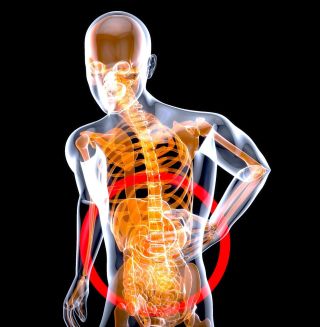Identity
Is the Microbiome a Part of Our Identity?
There are internal and external factors that shape our identity.
Posted October 25, 2023 Reviewed by Ray Parker
Key points
- The brain integrates signals from the body and the outside world to generate a sense of "self."
- In addition to the brain, factors such as socioeconomic status and the microbiome also influence identity.
- Identity is not static; it constantly changes in response to internal and external factors.

From the moment a child becomes self-aware, they are curious to know what makes them who they are. This question is about factors that distinguish each person from others. Two origins are suggested for the existence and nature of each person: the soul and the brain.
Identity and Consciousness
It seems that identity is closely related to consciousness. In one definition, consciousness refers to the experience and understanding of the external world and one's existence within it.
Experiences cannot be transferred to others, like experiencing pain, the color of a sunset, or the nostalgia of an autumn evening. Identity refers to one's sense of who they are, including their characteristics and values. Conversely, consciousness refers to an individual's awareness of their surroundings, thoughts, and feelings.
Some new neuroscience research proposes that the brain alone forms one's identity and self-consciousness. A hypothetical experiment called "Brain in a Vat" imagines a brain in a vat filled with nutrients and other compounds necessary for the survival of the brain.
This brain can generate consciousness if it receives fake signals from a computer that resemble the perceptions received from the external environment. This terrifying image raises suspicions that we might live in a computer simulation, similar to the concept depicted in the Matrix movies by the Wachowski brothers. The idea of living in a virtual world stems from an age-old debate about the separation of mind, brain, and body.
The most renowned philosopher who believed in the separation of the mind and body was René Descartes. He argued that the mind and consciousness belong to the supernatural realm, while the body belongs to the material world.
He did not believe that the mind is formed by brain activation. Although modern neuroscience research rejects the separation of mind and brain, there is still a relative separation between the brain and other body parts.
Identity Arises From the Brain
According to the brain-based theory of consciousness, all perceptions the brain receives cause new connections between neurons and create new circuits. The connectome, which refers to the intricate network of connections in the brain, is unique to each individual and is shaped by their perceptions of their body and the external world.
Some scientists argue that the connectome can be considered the same as the concept of "self." Therefore, several research programs are being conducted to implement connectome mapping for each individual and save an offline copy. In 2018, Sam Altman registered with Nectome to preserve his brain after death. People like Altman believe that one day, technology will achieve the possibility to recover the connectome and revive individuals.
It is becoming increasingly evident that our personality and identity are influenced by brain activation and other factors, such as body organs, socioeconomic status, the microbiome, genetics, and nutrition. However, the brain plays a crucial role in shaping a person's identity by integrating signals raised by the internal body and outside world to generate a sense of “self.”
Some psychological disorders, such as phantom limb syndrome or body integrity identity disorder (BIID), demonstrate that body organs significantly impact one's sense of identity. In phantom limb disorders, patients who have undergone surgical amputation of organs, such as hands, legs, or even breasts, experience sensations of the amputated organs, such as pain or itching.
On the other hand, BIID patients with rare disorders reject ownership of their organs and desire to get rid of them. Both disorders represent a disturbance in identity and self-consciousness [1].
The influence of socioeconomic status on our personality is significant. Our identity and awareness can be greatly affected by the social environment. Our interactions with others, cultural norms and values, and societal expectations contribute to how we view ourselves and the world.
Socialization is one way in which the social environment impacts personal identity. From a young age, our families, peers, and society influence us to adopt specific beliefs, values, and behaviors. These become deeply ingrained in our sense of self and shape our identity [2].
Microbiome Influences on Brain Functions
The human microbiome is a population of bacteria, fungi, and viruses in body cavities. The gut microbiota is the most studied microbiome, which has been found to play a role in various aspects of human health.
Studies have shown that the microbiome can communicate with the brain through various pathways, such as fermentation products, immune system modulation, and neurotransmitters. Through these mechanisms, the microbiome affects how one thinks, feels, behaves, and even decision-making processes and desires. Alteration of microbiome-beneficial populations or dysbiosis may cause psychological disturbances, including anxiety and depression [3].
Although the microbiome plays a major role in brain actions, mind, and identity formation, other factors should be considered simultaneously. Investigating each factor separately cannot fully explain the complexity of this phenomenon.
Emergence is the concept that complex systems or phenomena can arise from simpler, more fundamental elements. It suggests that a whole's properties or characteristics cannot be reduced to or explained by its individual parts. For example, ant colonies consist of individual ants, but the separate behavior of each ant does not explain the complex functions of the colonies.
The formation of intelligence by brain function is another example. The complex emergence of intelligence from the brain is an instance that occurs even though each neuron lacks individual intelligence.
Our identity seems to emerge from various internal and external factors, including genetics, nutrition, the microbiome, and signals originating from the body and society. Therefore, it is simplistic to think that mapping and running the connectome on a supercomputer or in a new body can regenerate the "self."
This copy is, at best, an offline version of yourself at a specific moment. Identity and consciousness are dynamic phenomena formed by the brain, determined by several internal and external factors.
References
1. Loewy, M. (2020). Phantom limbs and Body Integrity Identity Disorder: Literary and psychoanalytic reflections. New York, NY, US: Routledge/Taylor & Francis Group.
2. McAdams, D. P., & Pals, J. L. (2006). A new Big Five: fundamental principles for an integrative science of personality. Am Psychol, 61(3), 204-217.
3. Martin, C. R., Osadchiy, V., Kalani, A., & Mayer, E. A. (2018). The Brain-Gut-Microbiome Axis. Cell Mol Gastroenterol Hepatol, 6(2), 133-148.




